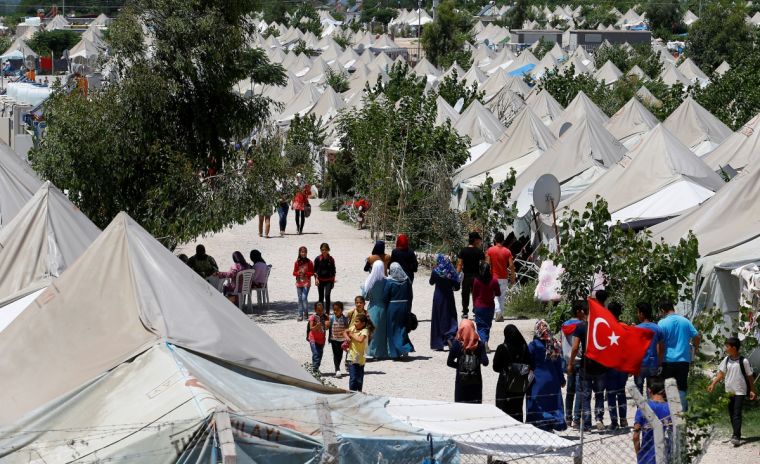Syrian refugees must not be sent back to Turkey, human rights campaigners warn

Syrian refugees in Turkey are failing to access vital support and must not be returned there by EU countries, Human Rights Watch (HRW) said on Monday.
The European Union is "morally, and indeed legally, obliged to share some of the refugee burden by not sending Syrian refugees back to Turkey without assessing their asylum claims," said HRW's Stephanie Gee.
The organisation said today that Turkey is "burdened by overwhelming numbers of refugees and [is] unable to provide sufficient protection and security for all."
The country currently hosts more than two million Syrian refugees, making it "hardly surprising that many are not getting the support they desperately need to maintain livelihoods," HRW said.
It added that Turkey should not be considered legally safe for returns as it does not meet the requirements for "safe third country" or "first country of asylum" returns.
In April, Amnesty International warned that thousands of Syrian refugees had been illegally returned to their homeland by Turkey since the beginning of the year, exposing "fatal flaws" in a refugee deal signed in March.
Under the deal, Turkey agreed to take back all migrants and refugees who crossed illegally into Greece in exchange for financial aid, faster visa-free travel for Turks and slightly accelerated EU membership talks. European countries pledged to accept one refugee directly from camps in Turkey in return for every person shipped back.
However, the legality of the deal hinged on Turkey being a "safe third country" of asylum – an understanding that was thrown into doubt by Amnesty's allegations.
HRW said today that Turkish policies and circumstances on the ground affirmed that it was not safe for returns.
Many Syrians are unable to access education, health care and lawful employment, and delays in registration mean some refugees cannot access even more basic services. They "live in fear of being forced to live in a camp or deported," HRW said.
Concerns have also been raised that Syrian refugee families are at risk of poverty and child labour because of these insecurities.
"Truly, it isn't safe for us here – we fled death, but have come to a place where we have no life," one Syrian refugee told researchers.
"I just want to be in any place that respects rights, where I can ask for them and be truly assured that I have them – nothing more," he added. "We just want to live, and for the law to protect us."











